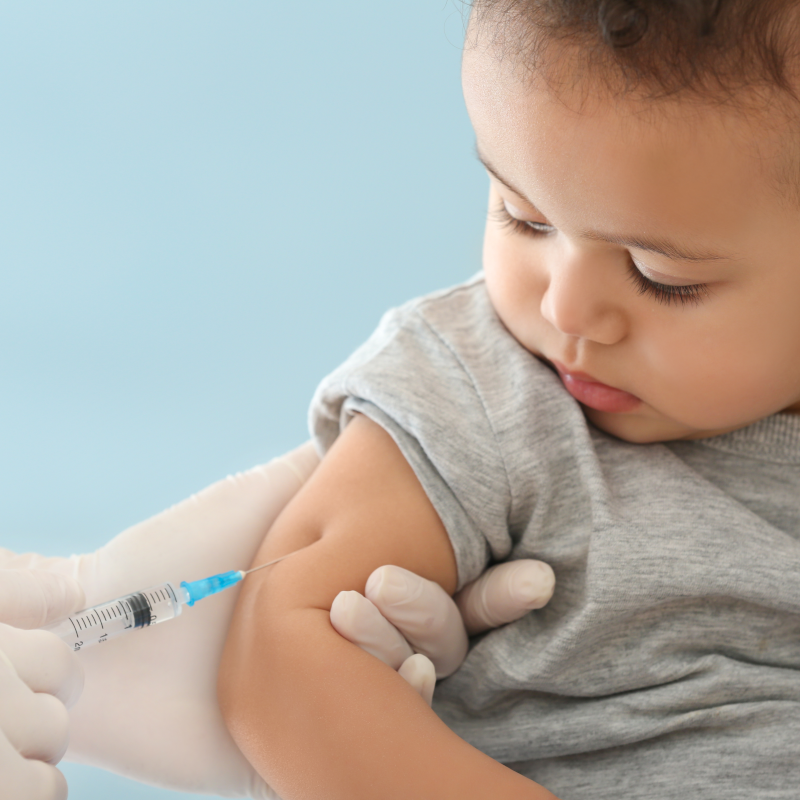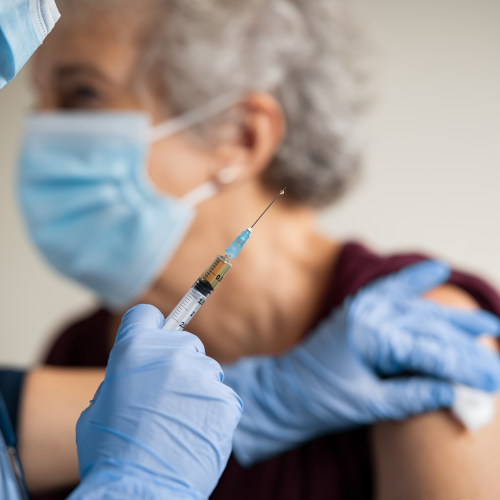RSV Immunizations
Immunizations to Protect Infants

CDC recommends all babies be protected from severe RSV by one of two immunization options: A maternal RSV vaccine given to the mother during pregnancy or an RSV antibody given to your baby. Most babies do not need both. Pregnant people are encouraged to discuss RSV immunization options for their infant with their provider during pregnancy.
The maternal RSV vaccine (Pfizer's Abrysvo) is given during weeks 32 through 36 of pregnancy. Maternal antibodies protect the baby against RSV for approximately 6 months after birth.
An RSV antibody (Nirsevimab) can be given to babies and some young children. This antibody provides immediate protection against RSV and lasts at least 5 months.
Timing of Immunization To Protect Infants
CDC recommends RSV immunizations during specific months to maximize protection during RSV season. It is important for your baby to have protection before RSV season. RSV typically peaks between December and January.
For more information, review our RSV Handout and visit https://www.cdc.gov/rsv/vaccines/protect-infants.html.
Vaccines for Older Adults

Three RSV vaccines are licensed by the U.S. Food and Drug Administration for use in adults ages 60 and older in the United States:
- GSK's Arexvy
- Moderna's mResvia
- Pfizer's Abrysvo
These vaccines work by causing an immune response that can protect you from respiratory disease if you get RSV in the future. Eligible adults can get any one of these three vaccines. The RSV vaccine is given as a single dose.
CDC recommends an RSV vaccine for all adults ages 75 years and older and for adults ages 60-74 years who are at increased risk of severe RSV.
The RSV vaccine is not currently an annual vaccine, meaning people do not need to get a dose every year. If you have already received an RSV vaccine, you do not need another dose at this time.
Timing of RSV vaccination for Older Adults
Eligible adults who have not previously received RSV vaccination may be vaccinated at any time of year, but vaccination will have the most benefit if administered in late summer or early fall, just before the RSV season. In most of the continental U.S., this corresponds to vaccination during August–October.




